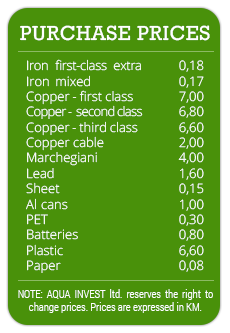Recycling is the separation of materials from waste and its reuse. Includes collection, separation, processing and manufacture of new products from the used items and materials.
Many waste materials can be reused if they are collected separately. Without recycling introduction in everyday life it is impossible to imagine any integrated waste management system.
Paper
As an options to minimize the damage caused to environment, it is possible to re-collect the paper which we no longer need and put it into recycling process. By recycling 1 ton of waste paper we save 17 trees, 4,200 kw of electricity and 32,000 liters of water.
Glass
Recycling one bottle saves enough energy to a light bulb of 100w up to full 4 hours. If you imagine that every year, in the world, approximately 28 billion bottles and jars are being thrown as waste, imagine how much electricity we would mange to save if this waste was treated properly. The advantage of glass is that it can be recycled endlessly.
Plastic
Plastic is a material made from petroleum. After use, plastic product take long time, more than 100 years, to decompose in the soil. Plastic waste is essentially not a waste, but should be treated as group of new raw material resources. In 2011th, the total amount of plastic packaging was estimated on 327,936.78 tons. Plastic waste in landfills takes 9% of the total weight of waste, but the volume occupies 32% in landfills. Recycling of plastic waste contributes to reducing energy consumption, and thus reducing emissions.


